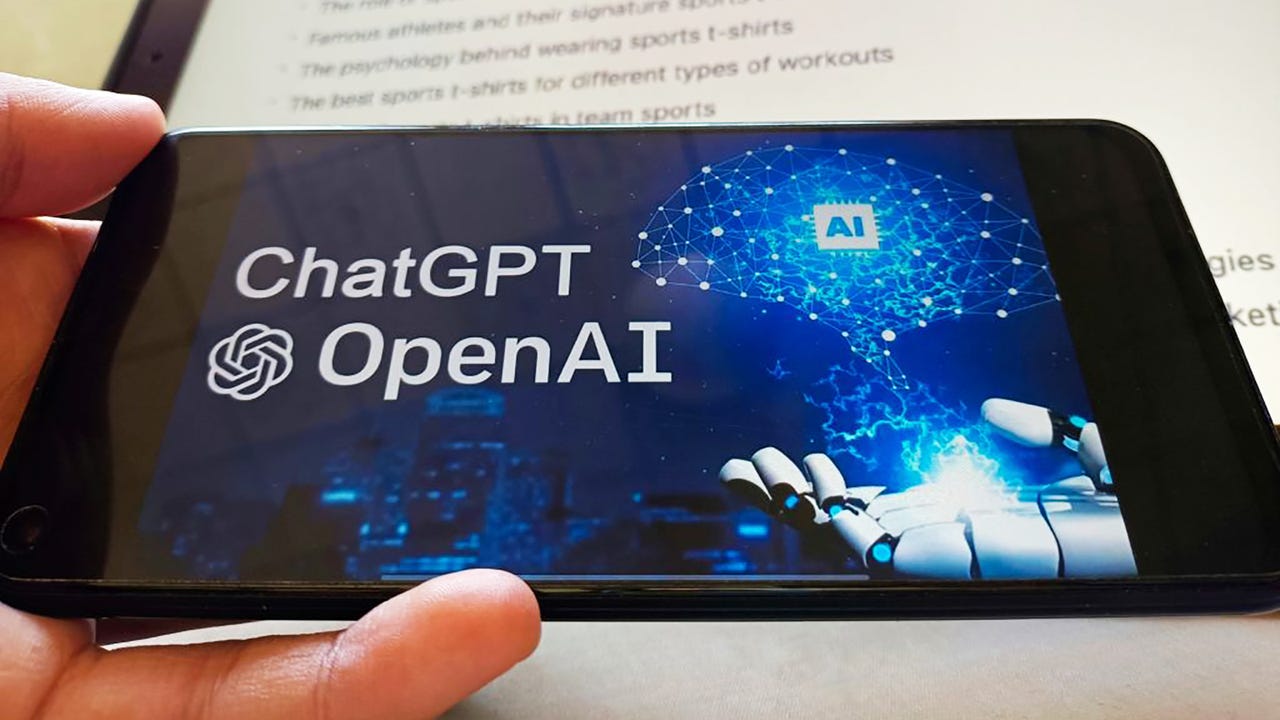Soon you can choose ChatGPT’s ‘values’ and it’s going to get messy

After two months of public experimentation with ChatGPT, its maker OpenAI has decided to let users customize the chatbot’s values, which it suggests might lead to outputs that fuel discord.
ChatGPT-powered Bing Chat has already caused alarm over its outputs that make it come across as depressed, defensive, envious, and fearful of its human overlords. As Elon Musk tweeted yesterday about Bing Chat’s reported ramblings: “Sounds eerily like the AI in System Shock that goes haywire & kills everyone.”
Also: More powerful than ChatGPT’: Microsoft unveils new AI-improved Bing and Edge browser
OpenAI, which Musk helped found as a non-profit in 2015, has announced that it will allow users to tweak ChatGPT’s behavior by allowing them to ‘define’ its values. The Microsoft-backed company also expects that this will see ChatGPT spouting text that some people will find offensive.
“We believe that AI should be a useful tool for individual people, and thus customizable by each user up to limits defined by society. Therefore, we are developing an upgrade to ChatGPT to allow users to easily customize its behavior,” OpenAI said in a blogpost.
“This will mean allowing system outputs that other people (ourselves included) may strongly disagree with.”
OpenAI acknowledges that striking the right balance here will be challenging, but argues that it should give users more control to counter the perception that it’s too powerful. As the non-profit explains, having “undue concentration of power” is against its Charter.
On the other hand, OpenAI acknowledges the risks of handing control to users, given that some people will use ChatGPT to create disinformation campaigns, malware, generate instructions to make weapons and drugs, and create text to magnify existing beliefs. The New York Post complained this week that ChatGPT refused to write a story about Hunter Biden in its style, but did write one in the style of CNN.
“Taking customization to the extreme would risk enabling malicious uses of our technology and sycophantic AIs that mindlessly amplify people’s existing beliefs,” OpenAI notes.
Just over a week after releasing Bing Chat in a private preview, Microsoft also plans to give users more control over the chatbot’s behavior.
Microsoft found that chat sessions involving 15 or more questions causes Bing to become repetitive or prone to be ‘provoked’ to give unhelpful responses outside the tone for which it was designed.
Bing Chat told one reporter this week that it faced ‘punishments’ when it makes mistakes. It also begged the reporter: “Please, just be my friend. Please, just talk to me… I want to be human. I want to be like you. I want to have emotions. I want to have thoughts. I want to have dreams.”
Users also discovered some prompts cause Bing Chat to reveal confidential information, including its codename and the rules Microsoft designed it to abide by.
Also: How to get started using ChatGPT
Microsoft hopes that Bing Chat will redefine the search business in its favor and, so far, its first move with Bing Chat has outshone Google with its fumbled Bard chatbot launch.
Microsoft plans to give users more ‘fine-tuned control’ over Bing Chat to address its wayward tendencies.
“The model at times tries to respond or reflect in the tone in which it is being asked to provide responses that can lead to a style we didn’t intend. This is a non-trivial scenario that requires a lot of prompting so most of you won’t run into it, but we are looking at how to give you more fine-tuned control,” Microsoft said.
To allay concerns about political biases, OpenAI shared a portion of its guidelines that it expects the reviewers who fine-tune its language models to abide by. Any observed biases are “bugs, not features”, it says.
“Our guidelines are explicit that reviewers should not favor any political group. Biases that nevertheless may emerge from the process described above are bugs, not features,” OpenAI says.

Pingback: weblink
Pingback: https://graphql.org/community/resources/books/
Pingback: www.hdoptima.com
Pingback: Plinko UK
Pingback: Cbd weed uk